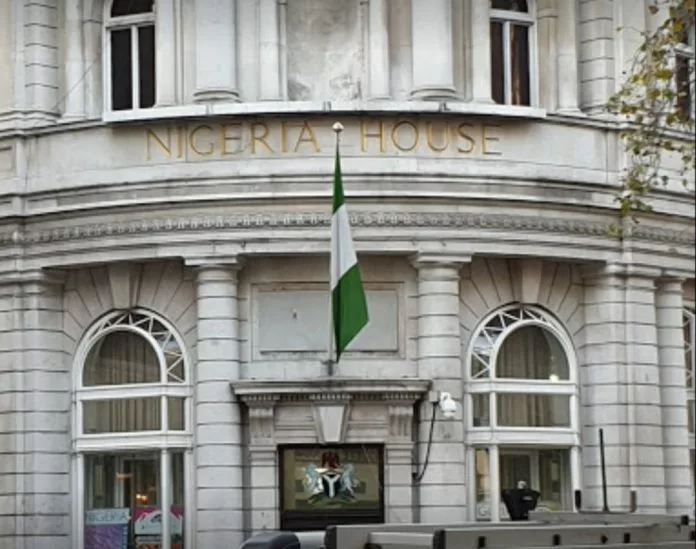As if confirming what most Nigerians, especially those who travel frequently have been complaining about, a report by #OurVotesCount (OVC), an initiative of the National Association of Seadogs, NAS detailed the sorry and pitiable state of Nigerian Embassies and Consulates abroad.
Specifically, the NAS report said the Embassies are in a sorry state and soiled by corruption. Titled “State of Nigerian embassies and consulates, 2022” the report was a flashlight on some select Nigerian missions.
“Although not in high proportion as with the case in most public institutions at home, the research found that some Nigerian Embassies and Consulates are also soiled by corruption.
“There are reported cases of visitors being asked to pay non-official fees for services that should either come for free or cheaper,” the report stated.
Part of the revelations of the NAS report is that most of the Embassies’ services are not digitized; there is a lack of courier services, outdated queuing procedure and biometric-related insufficiencies, lack of good physical infrastructure, poor internet and information technology facilities, limited level of interaction between embassy officials and Nigerians in the Diaspora and poor staff attitude.
Tellingly, this is the type of image Nigeria projects of itself outside the country. To say this has the tendency to engender a situation where Nigerians can be treated with disdain by their host countries is an understatement.
The deplorable state of the nation’s Embassies and Consulates brings to the fore, for the umpteenth time, the vexed questions of what image of the country is the nation willing to project abroad and, what is the driving principle of Nigeria’s foreign policy.
Fundamentally, in our opinion, a country’s foreign policy indicates how it projects its power and influence; leverages the type of power it wields and how it strives to achieve its interest.
Indeed, forward-looking nations have strategic foreign policy objectives that cover the security, protection and welfare of their citizens within and outside their national borders, and economic prosperity.
For those wondering why Nigerians are reportedly harassed all over the world, the NAS’ report that covered 94 Embassies and 12 Consulates of Nigerian missions abroad provides a fitting answer even as it confirms the reasons for the fading state of the nation’s diplomatic competence.
One issue, which has remained a recurring decimal as far as the state of Nigerian Embassies and Consulates are concerned, is the complaints of poor funding. Deprived of money with some of the Consulates’ offices being in unbefitting places, there is little wonder that Nigerians rarely get the desired services.
To say the Embassies are weighed down by poor funding, corruption and lack of professionalism is akin to stating the obvious. There are concerns that funds allocated to most of these Missions are barely enough to address some of the basic services the staff are expected to render. Moreover, to make matters worse, the little funds available often get siphoned through corruption and other sharp practices of some of the staff. If this act is not a double jeopardy, then nothing else is!
To demonstrate its concern and readiness to address the mess in most of its Embassies and Consulates, the federal government recently inaugurated a 13-man committee on how to resource the nation’s missions worldwide.
Secretary to Government of the Federation, Boss Mustapha, while inaugurating the committee said that the lingering indebtedness being faced by the foreign missions has negatively affected the nation’s image.
“As we are all aware, our Diplomatic Missions around the world are currently faced with multifaceted challenges following, among others, the scale of perennial indebtedness they find themselves” Mustapha has said.
As Nigerians will wait anxiously for the outcome of the committee’s report, which should be ready before the end of this year since the committee has three months from October 25 when it was constituted; it is appropriate for the government to deeply reflect on the NAS’ report.
Good enough, NAS’ report made some laudable suggestions including the call on the government to establish a trust fund for the acquisition, equipping and maintenance of the embassies and consulates.
The report also suggested that the Embassies should retain at least 20 per cent of the funds realized from services rendered by them for their daily functioning. We urge the government to consider such a report and ultimately implement some of the suggestions.





